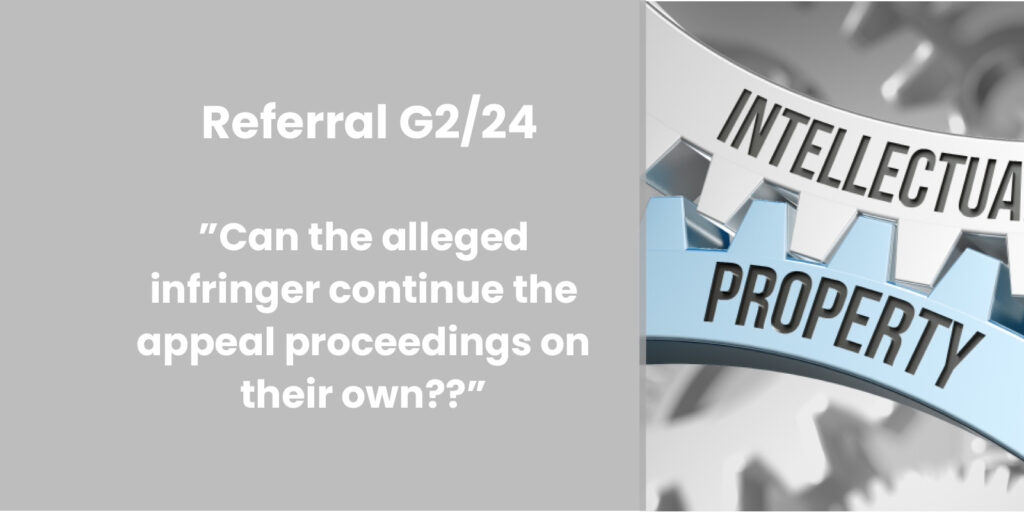Referral G2/24 – Can the alleged infringer continue the appeal proceedings on their own?

- Kaisa Suominen
- –
- News
- –
- 16.12.2024

The Patentee can start proceedings for infringement in a national court or the UPC. Similarly, a third party having received a request to cease alleged infringement can start proceedings in a court for a declaration of non-infringement.
In case opposition proceedings are pending at the EPO, this third party can intervene in the opposition proceedings, in certain conditions, within three months of the institution of the proceedings in a court. Intervention is also possible when the opposition proceedings are already in the second instance, i.e. an appeal is pending at the Board of Appeal.
A question on whether the intervener can continue the appeal proceedings on their own has been asked at the Enlarged Board of Appeal already previously (G3/04). In this case, the EBoA decided that if all original appellants withdraw their appeals, the appeal proceedings are terminated. The status of the intervener that joins the proceedings only at the appeal stage is thus at the moment different from that of the parties to the first instance proceedings.
New referral on the same issue
The question has been referred to the EBoA again, G2/24, based on the decision T1286/23 of the technical BoA. This decision criticises the earlier decision of the EBoA, i.a. as not being aligned with the Travaux Préparatoires of the EPC1973. The questions referred are as follows.
After withdrawal of all appeals, may the proceedings be continued with a third party who intervened during the appeal proceedings? In particular, may the third party acquire an appellant status corresponding to the status of a person entitled to appeal within the meaning of Article 107, first sentence, EPC?
The technical BoA proposes in its decision T1286/23 that an intervener that files their intervention during appeal proceedings could have three different statuses depending on the situation (reasons 3.9.4). The intervener would be a respondent, if the patent was revoked in the first instance (this would require the payment of opposition fee only, as an opponent does not have a right to appeal in such a situation); the intervener would have the same status as the appellant, if they pay the appeal fee in addition to the opposition fee; or the intervener would be a party as of right if they so wish and pay the opposition fee.
Currently, there is no basis in the EPC for the payment of appeal fee in this situation and therefore, it will be interesting to see how the EBoA will view such a proposal. As an alternative to the payment of the appeal fee, the technical BoA proposes that in case all appeals are withdrawn, the case is automatically remitted to first instance (reasons 3.16.2), which would leave the possibility to appeal for the intervener, should the decision of first instance not be as desired. This seems an option that would be easier to implement, not necessitating any changes in the Implementing Regulations

